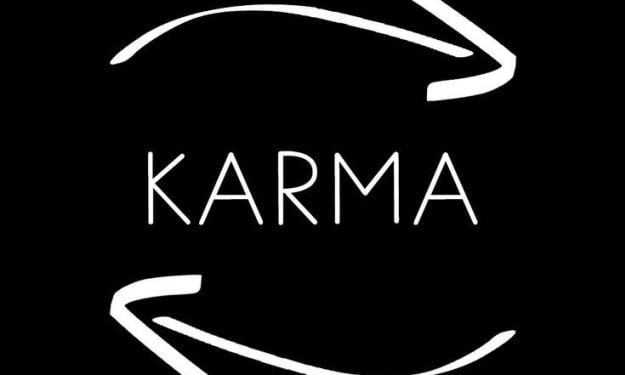Covid-19 and Anxiety
Techniques to relieve virus anxiety

Have you noticed your anxiety increasing as each news clip brings the Covid-19 virus closer to home? I have but I have a problem already with anxiety. I have been diagnosed with an anxiety disorder which according to the ADAA (Anxiety and Depression Association of America) affects about 40% of the American population. In the last two weeks or so, I have been feeling more uneasy and nervous.
But I have discovered some tools that have worked for me. Here are some techniques that have help me cope and not feel so overwhelmed.
First, I have cut back on watching the network news. I do not watch the network news every day. As a nurse, I must keep up on the Covid-19 so, I have made it a practice to only follow news feeds from the CDC, Mayo Clinic and the State Department of Health websites. That way, I am sure I am getting the best scientific medical information. What I have discovered about my recent rise in anxiety is that it is not caused by the virus but by my thinking and beliefs about the virus. The Greek Philosopher Epictetus explained it this way:
“Men are disturbed not by the things that happen,
But by their perceptions about them”
I want to make sure my perceptions are accurate. The point I am making is to lower my anxiety I do not have my eyes and ears constantly on the news. What news I do get, I make sure it is from reliable sources.
Secondly, I take what I call a breath break three times a day. The technique is known as the Relaxation Response and was developed at Harvard Medical School by a Dr Herbert Benson. It is based on his studies of the fight or flight response, which evolved as a survival mechanism. Millenniums ago, when our ancestors encountered a life-threatening situation like a hungry saber-toothed their bodies responded with a surge of stress hormones preparing them to fight or to run. As a result, their heart rate increased, blood pressure increased, they developed tunnel vision, they began to perspire, their muscles tense, and they were suddenly on high alert. Unfortunately, many people, like myself tend to activate the fight-or-flight response multiple times during a typical day, usually because of situations that are annoying and stressful, but not life threatening. These include traffic jams, long lines in the grocery store, work problems and listening to Covid-19 news. But all those surging stress hormones can take a toll on the body. Over time, such low-grade chronic stress can lead to increased anxiety, high blood pressure, muscle tension and a host of medical problems
The Relaxation Response was developed to shut off that fight -flight mechanism. It is simple, and cheap- no cost involved and that’s important to me. But it does require these three things: a quiet environment, a chair or comfortable seat and a passive attitude, that is not worrying about the technique itself. May I suggest you start simple- attempt it for 5 minutes three times a day.
Here’s what I do :
I go into my office. I put a sign on my door which reads: do not disturb-in meditation. I shut the door, turn off the light, sit in a comfortable chair, and put my hands on my stomach (to feel the breath rise). I began with a counting technique till it became natural. I took a deep breath (counting to myself- to the count of 4 or 5)- then I would hold it for about 4-5 seconds and exhale slowly (count of 5-6). Try it.
After the first couple times, I noticed a more relaxed state. And what was even more exciting, after I increased my time from 5 -15 minutes three times a day, I discovered my blood pressure dropped sometimes as much as 15-20 points and I had better mental clarity. Research is now touting the benefits of the relaxation response.
I soon realized that with any new technique, it requires practice. The relaxation response is like the practice of anything you want to learn- whether it be the guitar, piano or baseball. It takes practice.
Another tool I use to cope with anxiety is music. I usually incorporate deep breathing with listening to soft jazz or classical music. I usually put on my headset, close my eyes and just listen. I have also started playing some of my favorite songs on the keyboard and singing. It is amazing how good I feel after about a half hour of singing. Scientific studies have shown that singing decreases anxiety. If you do not play a musical instrument, there are other ways you can participate. Go to YouTube and sing along to your favorite songs via karaoke.
One final tool I use to cope is walking. I love taking a walk outside either by myself or with my partner. Walking with someone has the added benefit of increasing sense of well-being. Walking is not only relieving anxiety, but it is also healthy for your physical body.
Those are just a few techniques to help you deal with the increased stress and anxiety related to this Covid-19 virus situation. Next time, you feel overwhelmed with the news; take break, a breath, a walk or sing your favorite song.
About the Creator
Edward Kelly Jr
Edward lives in the Midwest, the heartland of America, He is a US Army Veteran who served as a Combat Medic during the Vietnam Era, a Licensed Practical Nurse and a Peer Support Specialist. He has a Masters in Theology from Franciscan Univ.






Comments
There are no comments for this story
Be the first to respond and start the conversation.